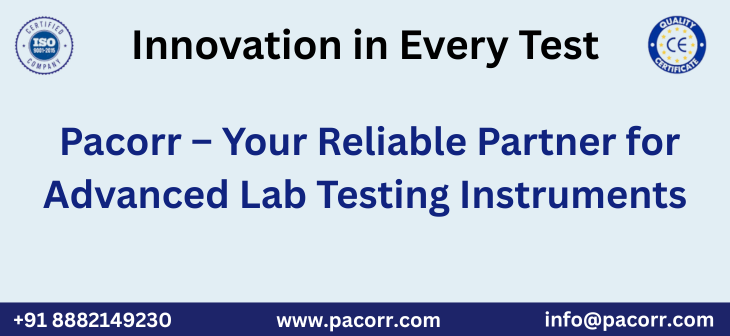
Pacorr is renowned for manufacturing highly precise and reliable salt spray chambers, instrumental in evaluating corrosion resistance in automotive parts. In the automotive industry, quality control is paramount, and components must withstand harsh environmental conditions. Salt spray testing, an essential process facilitated by Pacorr’s state-of-the-art testing chambers, helps ensure the durability and longevity of automotive components, significantly enhancing overall vehicle safety and reliability.
Understanding Salt Spray Testing
Salt spray testing, also known as salt fog testing, simulates corrosive conditions using a salt-laden atmosphere to assess the resistance of automotive parts against rust and corrosion. Pacorr salt spray chambers provide controlled environments where automotive components like body panels, fasteners, paint coatings, and alloy wheels are subjected to accelerated corrosion processes. These conditions emulate prolonged exposure to environmental elements, particularly in coastal or winter climates, making salt spray testing indispensable for manufacturers aiming for high-quality standards.
Key Importance of Salt Spray Testing in Automotive Quality Control
Corrosion Resistance Assessment
Automobile manufacturers constantly strive to enhance vehicle longevity and performance. Pacorr salt spray chambers allow engineers to determine corrosion vulnerabilities in car parts early in the design and manufacturing phases. Components like chassis, brake systems, exhaust systems, and suspension parts undergo rigorous testing. Pacorr’s testing procedures help manufacturers pinpoint corrosion-prone areas and apply preventive measures, such as specialized coatings or material selection improvements.
Compliance with International Standards
Salt spray testing is guided by stringent international standards such as ASTM B117, ISO 9227, and JIS Z2371. Pacorr ensures automotive companies adhere strictly to these standards. Compliance is crucial not just for regulatory purposes, but also for maintaining global market competitiveness. Products that pass Pacorr’s rigorous salt spray testing protocols significantly reduce the risk of failures or recalls, boosting consumer confidence and brand reputation.
Predicting Real-World Performance
Pacorr’s salt spray chambers accurately simulate severe environmental conditions. By predicting how automotive components perform in the real world, manufacturers can anticipate potential issues and proactively address them. This proactive approach minimizes warranty claims and enhances customer satisfaction, directly influencing brand loyalty and repeat purchases.
Cost-Effective Quality Assurance
Integrating salt spray testing into automotive quality control processes is a cost-effective decision. Pacorr’s testing methodologies enable companies to identify issues early, significantly reducing long-term costs associated with repairs, replacements, and warranty claims. Additionally, this proactive quality assurance approach helps mitigate liability risks, safeguarding the manufacturer's financial stability and market reputation.
Enhancing Product Durability and Reliability
Salt spray testing significantly contributes to the development of automotive components capable of withstanding severe corrosion conditions. Pacorr’s chambers facilitate extensive evaluation, ensuring parts like alloy wheels, exhaust components, and metal trims remain resistant to degradation over their lifecycle. Consequently, vehicles maintain their aesthetic and functional integrity for longer periods, appealing strongly to consumers.
Applications of Salt Spray Testing in Automotive Components
Body Panels and Coatings
Car bodies and paint coatings face continuous exposure to road salt, moisture, and environmental pollutants. Pacorr salt spray chambers test the resilience of these coatings, enabling manufacturers to optimize formulations that prevent rust and paint degradation, extending vehicle lifespan.
Fasteners and Fittings
Automotive fasteners, nuts, bolts, and screws are vital components that require high corrosion resistance. Pacorr’s testing equipment ensures these small yet crucial elements maintain structural integrity even under severe environmental stress, preventing catastrophic failures.
Brake and Exhaust Systems
Brake and exhaust systems operate under extreme heat and corrosive conditions. Pacorr salt spray testing verifies these systems' robustness, ensuring safe and reliable vehicle operation, thereby enhancing passenger safety and vehicle efficiency.
Suspension and Chassis Components
Suspension systems and chassis components are constantly exposed to water, road salts, and debris. Salt spray testing by Pacorr verifies their corrosion resistance, ensuring vehicles maintain optimal performance and safety levels throughout their operational life.
Pacorr Salt Spray Chambers: A Superior Choice
Pacorr salt spray chambers are engineered with precision, reliability, and user-friendliness in mind. These advanced chambers offer consistent testing conditions, high accuracy, and repeatable results, enabling manufacturers to meet and exceed automotive quality standards. Key features include automated test cycles, precise temperature controls, corrosion-resistant construction, and customizable testing parameters.
Conclusion
Salt spray testing is a critical aspect of automotive quality control, ensuring that vehicle components can withstand harsh environmental conditions. Pacorr’s advanced testing chambers empower manufacturers to rigorously evaluate corrosion resistance, predict real-world performance, and enhance product durability and reliability. By investing in high-quality testing protocols, automotive companies safeguard their brand reputation, maintain compliance with international standards, and deliver superior vehicles that meet customer expectations for performance and safety.
Thanks to Pacorr Testing instruments, we have all the required quality testing instruments that have helped us to ensure the best quality delivered to our clients.

Danish
Fair Exports Pvt. Ltd.

